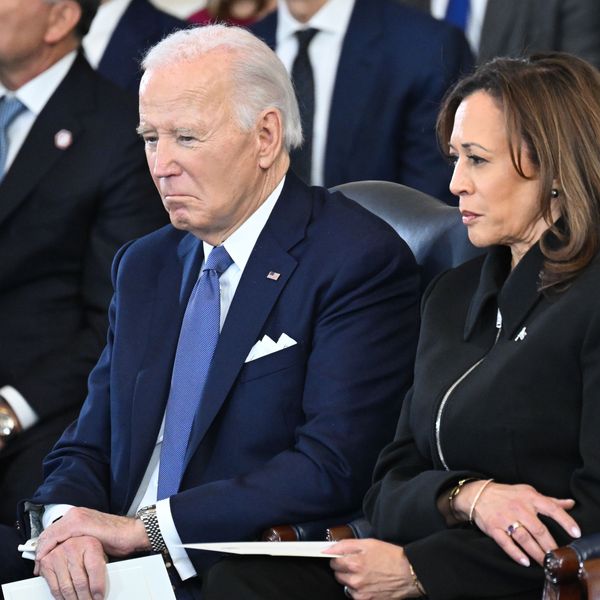The Democratic and Republican debates have this asymmetry: Republican candidates are presumed to need ideological sympathizers among their questioners--Fox News, for example, or Salem Media, which teams up with CNN for GOP debates--while Democrats are thought content to be quizzed by representatives of mainstream corporate media outlets like CNN, CBS and ABC (FAIR Action Alert, 10/9/15).
This setup resulted, on the Republican side, in the spectacle of Salem Media's Hugh Hewitt pressing GOP contender Ben Carson to declare his willingness to "kill innocent children by not the scores, but the hundreds and the thousands." (Carson's response: "You got it. You got it.")
And on the Democratic side, the result is debates like the one we got on December 19.
Although primary debates are ostensibly intended to help members of each major party select their nominee, the questions asked by the debate moderators from ABC--World News Tonight anchor John Muir and national security correspondent Martha Raddatz--consistently posed questions from the right.
When Raddatz pressed Hillary Clinton: "Our latest poll shows that more Americans believe arming people, not stricter gun laws, is the best defense against terrorism. Are they wrong?" Or when she pushed Bernie Sanders on "sending US combat troops to join a coalition to fight ISIS."
She asked a couple of questions "about a new terrorist tool used in the Paris attacks, encryption"--even though, as The Intercept's Dan Froomkin reported, evidence "suggests that the ISIS terror networks involved were communicating in the clear, and that the data on their smartphones was not encrypted." Still, Raddatz was able to use the dubious encryption claims to push Clinton to "force [Apple] to give law enforcement a key to encrypted technology by making it law."
As for Muir, he sought an endorsement of racial profiling from Sanders, citing "a neighbor in San Bernardino who reportedly witnessed packages being delivered to that couple's home, that it set off red flags, but they didn't report it because they were afraid to profile." He also pushed Clinton and Martin O'Malley to endorse "the idea of a halt or a pause" in acceptance of Syrian refugees and challenged Clinton to explain what was wrong with Donald Trump's "proposed ban on Muslims coming to America," given that "36 percent of Americans, more than a third, agree with him."
What about the concerns of the nearly two-thirds of Americans who don't agree with Donald Trump? Progressive perspectives on security and foreign policy were hard to discern in the questioning. As with the most recent Republican debate (FAIR Blog, 12/16/15), "terrorism" was treated as it meant "political violence by Muslims," with right-wing mass killings like the Charleston church massacre and the assault on Planned Parenthood in Colorado Springs going unmentioned.
The drone war was ignored by the moderators, as were civilian casualties. The disastrous consequences of the Libyan intervention that Clinton presided over was brought up at one point, but the premise of the question was that Clinton "should have done more to fill the leadership vacuum left behind"--not that the secretary of State shouldn't have been using military force to overthrow governments she disliked.
Even though the world's leaders had reached a landmark climate change just a week before the debate, "climate change" and "global warming" didn't pass the moderators' lips.
ABC News' approach to domestic issues was not much different. Raddatz pressed on the cost of a single-payer healthcare plan-"Can you tell us specifically how much people will be expected to pay?"--and on his plan to make public colleges tuition-free: "How does that really lower the cost other than just shifting the cost to taxpayers?" She tried to get Clinton and O'Malley to promise not to raise takes on households making $250,000 or less--in other words, families who make more than 97 percent of the country.
Muir asked all three candidates a question about Black Lives Matter-but he focused on the "so-called Ferguson effect, police holding back because they're afraid of backlash." Voters who are worried about "a chill wind blowing through American law enforcement" were represented by ABC News--but those who are more worried about police officers killing unarmed African Americans with impunity were out of luck.


